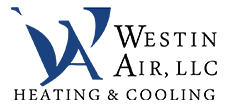
OH LIC #38290

OH LIC #38290
Home > HVAC Services > Indoor Air Quality Solutions > Air Purifiers
In today's world, clean, pure air in our homes is more important than ever! There are many pollutants and allergens in the air we breathe. Most people want to ensure the air their family breathes in their home is clean and pure. We will attempt to give you an overview on the different aspects and types of air purifiers that are available for home use.
First, there are many stand alone units that are available on the market. These are good for purification of the air in a single room, and come in many different types of purification. Big box stores usually offer several different models, along with home improvement stores. While stand alone units are great, we are going to discuss units that will purify the air in your whole home, instead of just a single room. There are many options out there, and we will discuss the basic types and their advantages.
Whole home air purifiers are installed on your central heating and cooling system. By doing this, the system can trap particles in the air, as the air is moved through the ductwork. Some of the particulate materials that can be removed are dust, pet dander, pollen, mold spores, smoke, and some bacteria.. The most basic and the foundation of a good home air purification system would be a good, high quality air filtering system. These are installed between the return air that is being pulled from the rooms in your home and the central heating and cooling unit. Air filters are rated for efficiency in removing this particulate matter, by what is called a MERV rating. MERV stands for Minimum Efficiency Reporting Values. The ratings that you will see on the different filters available are derived by using a testing method that was developed by the American Society of Heating, Refrigeration, and Air Conditioning Engineers, or commonly called ASHRAE. The higher the MERV rating number is, the better that particular filter is for trapping these particles. Generally, you will see air filters with ratings between 8 and 16.
You may also see filters that are referred to as a HEPA filter. HEPA stands for a "High Efficiency Particulate Air" filter. To earn a HEPA rating, these pleated mechanical filters must re move at least 99.97% of any airborne particulate material with a size of 0.3 microns. Particles in the air that are larger than 0.3 microns, are removed with even higher efficiency with these filters.
Now that we have discussed what MERV ratings are, we see that the higher the MERV rating, the more particles the filter will remove. If so, why not buy the filter with the highest MERV rating? Of course, the higher rated filters are certainly more expensive. But there are reasons you don't want to buy the highest rated filter, other than cost.
Filters with higher MERV ratings will definitely remove more particles, but how do they do this? In most cases, the filters are made of thicker material. This thicker material can definitely restrict the airflow in your HVAC system, which is not a good thing. Some of the problems with restricted airflow are a decrease in the comfort of your home as the air is not circulating freely, an increase of energy use, and even damage to the compressor. These problems are definitely things you would want to avoid. Definitely, check with your HVAC professionals for advice on which filters would be compatible with your system.
We have found that a MERV 11 air filter gives a good amount of filtration and is generally not too restrictive for residential systems. Some filtration systems can accommodate a higher MERV rating, without greatly affecting airflow, but it is a good idea to check with your HVAC company first. Most air filters that are rated MERV 14 or higher, are designed for commercial usage. Most commercial HVAC systems are designed to overcome the restrictions of the thicker material required for the higher MERV ratings.
Air filters do a good job of purifying your indoor air by trapping airborne pollutants, but they do nothing to eliminate viruses and some VOCs (volatile organic compounds), for example fumes from chemicals, paint, etc. UV products have been used for many years to kill bacteria and viruses in healthcare environments. You can now install a UV air purifier on your residential HVAC system to further improve the quality of the air in your home. Some of the things that a UV light can eliminate from your home are bacteria, viruses, mold, mildew, odors, and VOCs. The benefits of eliminating these substances from the air in your home are preventing certain types of sickness, reducing allergy symptoms, and reducing the exposure to mold and mildew. The professionals at Westin Air can suggest a good UV device that would be compatible with your heating and cooling system.
Another air purifier that we have found very effective is an ionizer. Homes that have been more recently, are sealed very tightly to reduce energy usage. While this is good for comfort and cost efficiency, it does lead to poor indoor air quality. Many times the indoor air in these tightly sealed homes can be up to 5 times more polluted than the outdoor air. Ionizers are a newer technology than UV lights, and they are very effective in reducing pollutants like viruses, bacteria, and VOCs. One benefit of ionizers over UV lights, is the cost of operation. UV lights eventually need replaced, but ionizers rarely need any maintenance at all.
Although there are various air purifiers on the market, most will fall in the categories that we have discussed here. If you have a particular problem or concern for your home's air quality, please give Westin Air a call. We will help you find the best solution for clean, healthy air in your home.
Air Conditioning Services
Heating Services
Geothermal Services